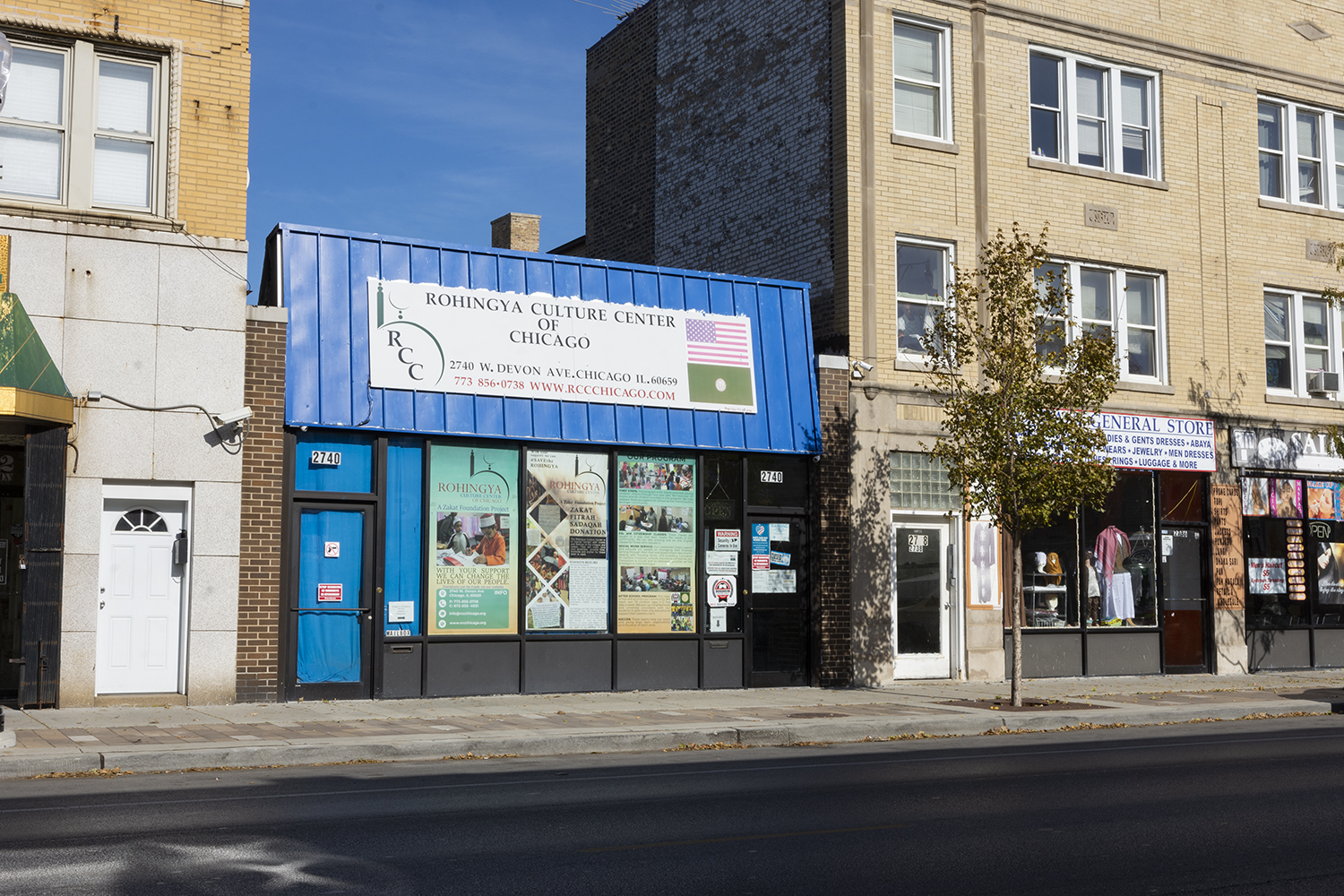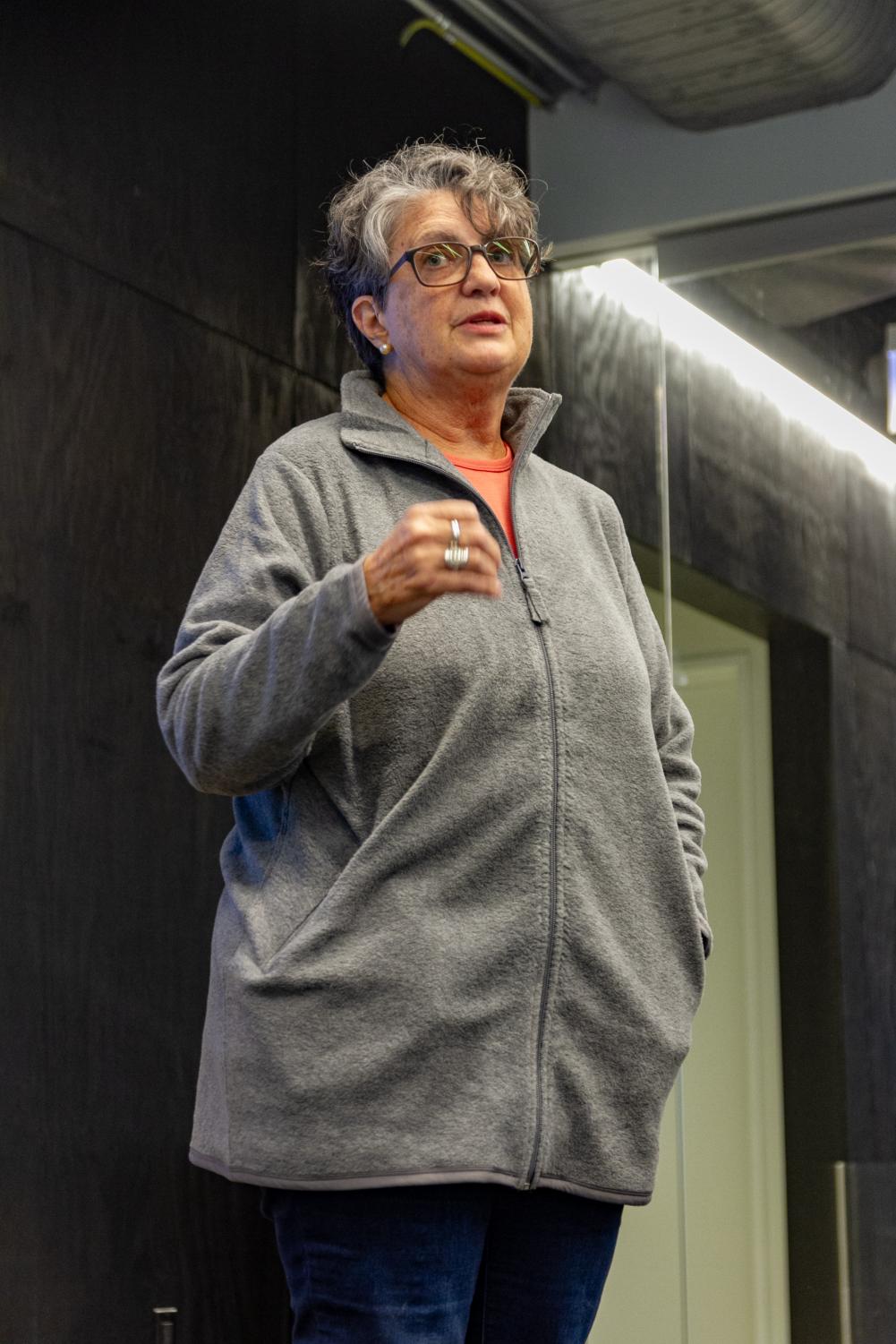Students to help Rohingya Cultural Center
November 8, 2019

Nasir Zakaria was 14 years old when he escaped captivity in what was then the country of Burma. Kidnapped by the military, alongside others, he waited until the soldiers were asleep to make his way through the jungle. If they found him, they would kill him, and if he stayed, they would likely still kill him.
When Zakaria came across a truck driver, he was taken to the next town over to live with his uncle, but he could never go back home. Zakaria risked being put into slavery or facing arrest as he was smuggled from then-Burma, now Myanmar, to Bangladesh, then Thailand and Malaysia, where he then spent 23 years.
At age 38, he was admitted into the U.S. with his wife and children, and in April 2016 he opened the Rohingya Cultural Center, 2740 W. Devon Ave., in Chicago.
Zakaria’s story was told to students at a gathering of Columbia’s Muslim Student Association on Wednesday, Oct. 30, by Laura Toffenetti, assistant director of the Rohingya Cultural Center. She spoke to the group at the Student Center, 754 S. Wabash Ave., about how they can help the struggling organization.

Toffenetti said Chicago is home to more than 1,600 Rohingya refugees who have resettled after facing persecution in Malaysia. Because their language is so rare, it can be hard to find translators or ways to communicate, and 90% of them cannot read or speak English.
The center has been facing financial obstacles as donations have decreased and a government grant they applied for last year was denied. Although the center can cover the costs of rent and utilities, it has become a community effort to find more donors as the center is “due to run out of money in the end of March,” Toffenetti said.
MSA is working to reach out to brands and companies to spread the word on what is happening with the center, said Hinda Akel, senior communication major and vice president of marketing for the MSA.
“We are trying to let people know they exist. That was the biggest issue. People did not know it exists,” Akel said.
Funded by donations, the center serves more than 400 local Rohingya families. The center also has a soccer team, provides English as a second language classes and staffs full-time caseworkers. It also offers support to families and helps organize demonstrations to raise awareness about the genocide of Rohingya people.
“When [our vice president] took a trip to the Rohingya Cultural Center, she was telling us all about it, and we, luckily, were able to get someone to come and speak to MSA. And I feel like that whole interaction is what MSA is about,” said Oula Yassine, senior fashion studies major and president of MSA.
MSA plans to move forward with fundraising and is planning to ask leaders of local mosques for donations on their holy days to aid the center.
“We are working on talking with our local mosques because the mosques that we live around are really keen on giving back to different communities,” Yassine said. “Usually, during Friday prayers—which is our holy day—they do a list of donations for certain causes.”
Last year, the center created a “Mommy and Me” class to help Rohingya mothers learn English. Toffenetti said there were no English education classes where families could bring their children and said people were “isolated in their homes.”
Toffenetti said many in the Rohingya community work minimum wage jobs and that it can be expensive living in Chicago with such large families.
“There’s a myth that refugees are extraordinary people, but they’re not,” Toffenetti said. “They’re just regular people in extraordinary circumstances.”






